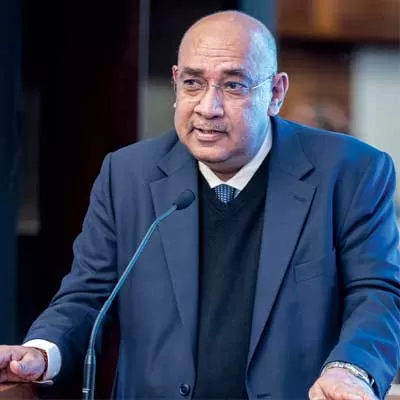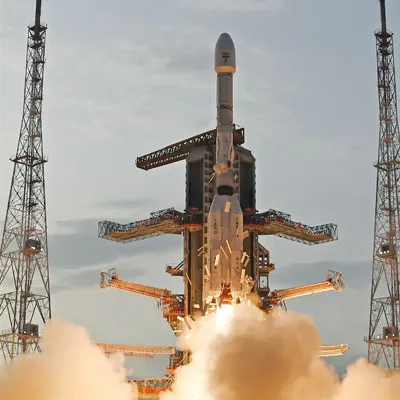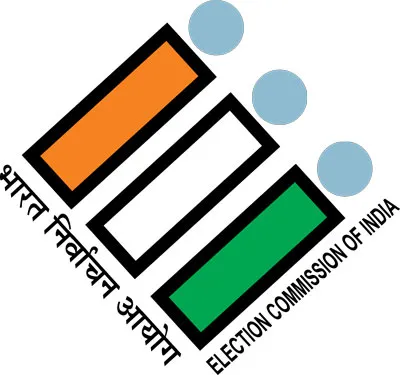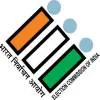State-owned infrastructure lender India Infrastructure Finance Company (IIFCL) plans to raise approximately $ 200 million through external commercial borrowing (ECB). In this context, Padmanabhan Raja Jaishankar, Managing Director, IIFCL, speaks to PRATAP PADODE, Founder & Editor-in-Chief.IIFCL’s focus is aligned with the Government’s push towards roads and power. However, you are now exploring some new areas, like sustainable assets and recycling initiatives. Can you elaborate on that?We’re indeed on a transformational journey and we aim to support India’s broader transformation as outlined by our honourable Prime Minister. As a 100-per-cent government-owned entity, our role is to assist the Government of India in its infrastructure endeavours. Infrastructure has always been a reliable area of focus for the Government and we’ve consistently aligned with that push.That said, there has been a significant shift in how infrastructure assets are viewed. In the early years, our focus was primarily on construction, but now these constructed assets are becoming revenue-generating, creating a new asset class. We now have two kinds of assets: construction-oriented assets, like greenfields, and completed, revenue-earning brownfield assets. This shift is attracting both global and domestic players to the sector, which is a great thing for liquidity in the system. If this momentum continues, it will undoubtedly propel the sector further.Given the shift from construction to revenue-generating assets, do you foresee monetising these assets? For instance, would you sell them to another investor and reinvest the funds, or would you continue holding on to them?There are two main types of funding in any infrastructure project: equity and debt. Debt funding focuses on supporting the operations and progress of the asset, while equity funding is geared towards promoting and expanding the project. In the infrastructure space, there’s a new trend. Once construction companies have completed their work, they have an exit option through concession agreements. These specialised contractors leave after completing the construction phase, having enhanced the asset’s valuation and their own equity value. The proceeds are then typically reinvested into new infrastructure projects, often through debt financing.Once the construction risk is mitigated and the project transitions into an operational phase, we see the debt getting refined. New lenders come in, offering more favourable terms as the risks associated with construction, land acquisition and approvals have already been addressed. This opens up a more stable, lower-risk investment, which attracts further investments. This is how the system operates to keep the momentum of infrastructure development going.We specialise in debt financing, while institutions like NIF and private-equity platforms typically handle equity investments. We do not subscribe to equity investments; our focus remains squarely on debt.IIFCL is looking at raising $ 200 million through bonds. How do you see the impact of recent fluctuations in the rupee?We’ve been closely evaluating the market for the right opportunity to raise resources. While we have set targets for this year, we remain flexible and strategic in our approach. Our roadmap for this year is well laid out and we’ve already surpassed some of our targets but we’re always looking to maximise our support for the infrastructure sector.As for the bond issuance, we keep a close eye on market conditions. We evaluate each opportunity based on its merit, timing and viability. We’re always open to raising funds when the time is right and market conditions align. That’s why we stay vigilant and ensure our systems remain agile.What’s your current position regarding risk management and ensuring that the infrastructure sector remains insulated from external challenges?Infrastructure projects typically withstand short-term challenges, and we focus more on the long-term view. While there may be short-term disruptions, like those related to elections or slowdowns in certain sectors, the fundamentals of the infrastructure sector remain strong. The Government’s push, including financial backing, reforms and the introduction of new concession platforms, gives this sector the robustness it needs to weather short-term volatility. So, while short-term hurdles may arise, we are confident that the infrastructure sector will continue to scale in the long run, driven by these foundational strengths.Speaking of regional development, while disbursements are strong in states like Maharashtra, the Northeast is still a relatively small focus area. But with the Government’s increasing emphasis on the Northeast, do you have plans for expansion there?We’ve laid a strong focus on the Northeast and have opened new offices there. Our consultancy organisation is also setting up operations in the region to help shape PPP projects. We are not only looking to support government initiatives but to structure and shape these PPP projects to unlock greater infrastructure development in the Northeast. We are committed to this region and believe that the infrastructure potential in the Northeast is immense, which is why we’ve already put resources and people in place to support future projects there.IIFCL is also venturing into new areas, such as data centres and sustainable financing. Can you talk more about these initiatives?We’ve started entering the data centre space, albeit in a modest way so far. However, we’re now scaling up and entering this area more aggressively.





















